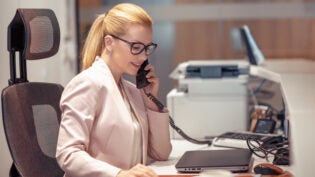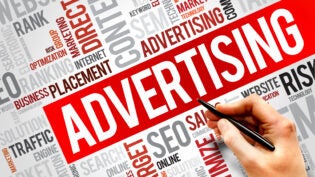
There’s a lot of talk going on in the online marketing industry about the seemingly imminent takeover of native advertising. Advertisers, publishers, bloggers, and affiliates all seem to be ready and waiting for the shift from traditional banner ads to sponsored content, expecting native advertising to really step into the spotlight in 2014.
But what’s all the buzz about? Why is native advertising supposedly so powerful that it’s expected to fundamentally change the Internet marketing industry? To find out we sat down with Mike Mothner, the founder and CEO of digital marketing firm Wpromote. Mike has some great real world insights when it comes to many aspects of the digital marketing industry, and has even authored the book Experts and Engines: ROI Focused Online Marketing through Intuitive Search Intelligence which describes the relationship between humans and robots in digital marketing. To learn why he thinks native ads are the next big thing in digital marketing, read on…
Why do you see native advertising as the next big thing in online marketing?
Marketing fads come and go, and in the online world, fads disappear quickly. What stays the same through all of the turmoil is content. To succeed, you need to create content for humans. Always think about what you would find compelling. Here’s my litmus test for content: “Does this piece of content compel me as a person to share?” If it doesn’t pass that test, then it’s not quality content. Similarly, the days of trying to game Google are over. I guarantee that the next Google Hummingbird or Panda or Penguin update is going to be about creating compelling content for humans, not search engines.
How can content and social media marketers utilize the power of native advertising to drive more conversions?
When people interact with social media, they want interactions with people, not ads. That is why content-focused advertising on social media is far and away more successful than other forms of advertising. Whether it is humorous, interesting, controversial, it needs to blend in with the content that consumers intended to originally consume. From a conversion standpoint, if you align your brand and the content in your advertising with the type of content people wanted to consume, you are going with the grain of consumers’ intent, and conversions will be rewarded.
What benefits should advertisers expect to see from native advertising? On the flip side, what benefits can publishers expect?
Advertisers can expect to see an increase in their organic search results and traffic. Because Google values “real” copy rather than anything written with a search engine in mind, their pages will appear higher in organic search results. It’s a win-win for both advertisers and consumers.
For publishers, native advertising is beneficial because consumers see it as relevant content rather than obnoxious disturbances. Buzzfeed is a publisher that does a great job of this with its sponsored content. Companies, like Geico, create content that Buzzfeed readers want to see, which benefits Buzzfeed because it keeps consumers happy and returning, which then makes Geico happy and returning.
Can you summarize the main point of your book on Intuitive Search Intelligence and the ways in which humans and robots are coinciding in modern marketing? How does native advertising factor into this equation?
Intuitive search intelligence combines machines and human intuition. I’ve seen a trend in digital marketing recently where marketers enter a few keywords and then let algorithms take care of the rest of the campaign. This leaves potentially better keywords unutilized and therefore yields underperforming campaigns. When people stay involved in campaigns, their natural curiosity can find the best keywords that algorithms may not and create the best campaigns.
Another problem that occurs from too much reliance on machines is that different components of digital marketing become siloed. With people constantly involved and communicating across teams, as intuitive search intelligence demands, content improves. Better content makes for better native advertising.
In your opinion, what does the future hold for native advertising and those who use it?
The importance of native advertising will only grow in the next several years. I’m confident that the next major Google search results change will favor good content over anything else. As long as you have strong, compelling content that is useful and interesting to people—which is what makes good native advertising—your search ranking will be fine.
When people ask about the future of search—where Google is going—it is an endless march towards recognizing and rewarding great content. Content that people engage with, comment on, share, post, and link to. Native advertising that can leverage this by producing content of true value will be incredibly rewarded, because the advertising can get a life of it’s own beyond the original ad space purchased. It will be shared, engaged with and produce incredible ROI. The challenge? Creating amazing content is far easier said than done.
The point I want to drive home is that content is and will continue to be a key driver in all digital marketing. Today’s consumers are smart. They can spot an ad a mile away. They don’t mind it, however, if they find the ad beneficial. As long as advertisers create content that is relevant, important and could never be mistaken for spam, their ads will perform well with consumers.
This article was originally published by The Mail
Published: May 14, 2014
2369 Views
2369 Views












